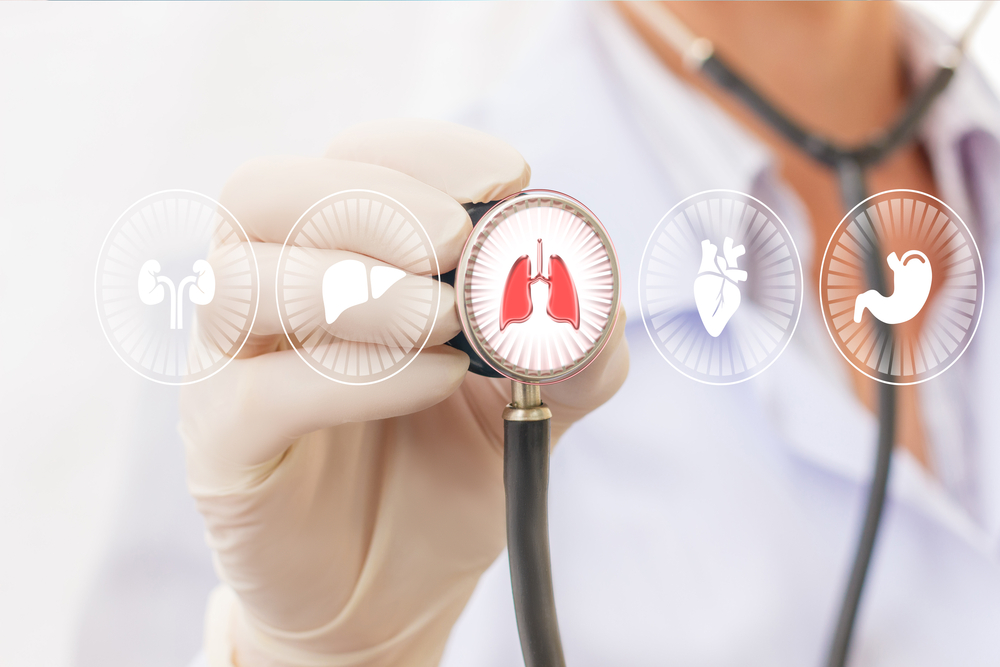Claritas Gaining Global Rights to R-107, Varied Nitric Oxide PAH Therapy

Claritas Pharmaceuticals has signed a letter of intent with the Salzman Group to acquire exclusive global rights to develop and market R-107 — a liquid form of nitric oxide — to treat, and possibly reverse, pulmonary arterial hypertension (PAH).
The agreement is expected to come into effect by May 15, pending regulatory approval.
Nitric oxide, a gas naturally found in the body, works as an antiviral, fighting off viruses. Claritas — previously known as Kalytera Therapeutics — initially acquired a license to advance R-107 as a potential treatment of SARS-CoV-2, the virus that causes COVID-19, and other viral infections.
Nitric oxide also works as a vasodilator: it relaxes and widens blood vessels, so that blood flows more easily through them with less pressure. In studies in an established rat model, R-107 showed an ability to treat PAH by dilating blood vessels and restoring blood pressure in the lungs, Claritas reported in a press release, with benefits persisting after treatment stopped.
Similar results were seen in a rat model of COVID-19, one that closely matches the severe respiratory distress that can occur in people with PAH and SARS-CoV-2 infection.
“It has … been demonstrated that nitric oxide is clinically effective in the treatment of PAH. For this reason, we are now acquiring exclusive, worldwide rights to develop R-107 as a nitric oxide therapy for PAH,” Robert Farrell, president and CEO of Claritas, said in the release.
Studies in animals “were exceptional,” Farrell added. “R-107 was observed to be superior to all of the approved drugs in reducing pulmonary arterial blood pressure,” and “was also seen to durably reverse disease severity after a short course of therapy.”
While most nitric oxide treatments for pulmonary hypertension are inhaled, Claritas is developing R-107 as an injectable or oral therapy as well, for systemwide delivery. This would allow it to reach “sections of the lungs that are poorly ventilated, which inhaled nitric oxide cannot reach,” the company stated.
Clinical trials testing R-107’s potential to stably reverse PAH are now planned. An agreement with CMAX Clinical Research in Adelaide, Australia, whose centers run Phase 1 and 2 studies, is in place, the company announced in a separate press release.
“We will initiate and complete our Phase 1 clinical study this year, and we expect to complete a Phase 2 study of R-107 in the treatment of PAH in 2022,” Farrell said.
R-107 will be initially evaluated in an injectable formulation in a randomized and placebo-controlled Phase 1a study, assessing its safety and pharmacokinetics (the therapy’s movement into, through, and out of the body).
Expected to start in July or August and last for two months, it intends to enroll 32 middle-aged healthy volunteers in Adelaide, with each given by intramuscular injection one of four ascending doses of R-107.
If its results are positive, the company plans to open a Phase 1b study before the year’s end testing repeat dosing with R-107.
Data from these Phase 1 trials could support a pilot Phase 2a study planned in PAH patients, which Claritas intends to open in early 2022.
This Phase 2a study will evaluate the effects of R-107 in 12 people with severe PAH undergoing routine cardiac catheterization at Royal Adelaide Hospital. Its goal is to establish proof of concept that the reduction in blood pressure is restricted to the pulmonary circulation, without affecting peripheral blood flow.
“R-107 is the first and only drug to demonstrate the ability to reverse established disease. Based on these exceptionally positive and unique findings, we believe that R-107 could become a best-in-class, front-line therapy for PAH,” Farrell said.
Part of its value relies on its varied modes of administration, and as a compound that steadily releases nitric oxide into tissues throughout the body over a 24-hour period.
R-107 is a “platform technology that transforms nitric oxide therapy from an impractical, expensive, and difficult to administer inhalation therapy, into a practical treatment that can simply be administered by capsule, injection, or nasal spray,” Farrell said.
The company also reported that R-107 has issued or pending patents covering its composition and method of use in approximately 40 countries, including the U.S., Australia, Brazil, China, Europe, India, Japan, Russia, and South Korea.
Under this licensing agreement, Claritas will issue shares common stock to Salzman of up to 19.99% of outstanding shares, pay licensing fees once the agreement is definite, and agrees to future payments and royalties that include $2 million upon completion of a Phase 3 study in PAH patients, and $5 million each should R-107 be approved to treat PAH in the U.S. and markets elsewhere, including Europe (the EMEA).







